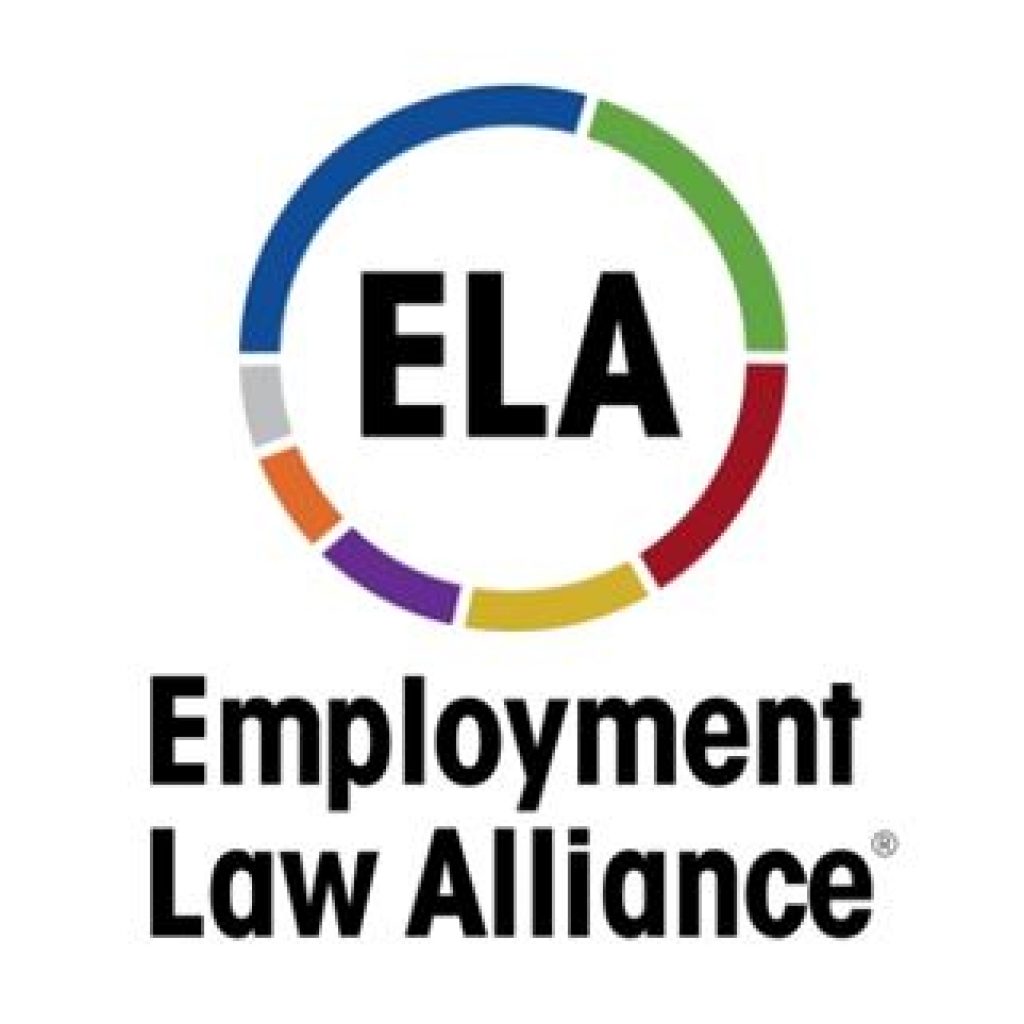April 2021 E-Update
Click here to view entire E-Update as a PDF
RECENT DEVELOPMENTS
The DOL’s “Essential Worker, Essential Protection” Initiative
Throughout the COVID-19 pandemic, the U.S. Department of Labor’s Wage and Hour Division (WHD) has issued guidance for employers and employees navigating new and unexpected workplace challenges. The “Essential Worker, Essential Protection” initiative is the WHD’s latest action. For more, click here.
The Fair Labor Standards Act and COVID-19: Updates from the DOL
The U.S. Department of Labor’s Wage and Hour Division (WHD) has updated its COVID-19 and the Fair Labor Standards Act: Questions and Answers, initially issued in July 2020, to incorporate additional information that has become relevant as the pandemic has continued. For more, click here.
The Family and Medical Leave Act and COVID-19: More Updates from the DOL
As noted elsewhere in this E-Update, the U.S. Department of Labor’s Wage and Hour Division (WHD) has revised its COVID-19 and the Family and Medical Leave Act: Questions and Answers, initially issued in July 2020, to address additional issues of relevance in the context of the continuing pandemic. For more, click here.
NLRB Unexpectedly Decides to Retain Existing Contract Bar Rule
In a surprising decision, and a disappointing one for employers, the National Labor Relations Board (the Board) decided to retain the Contract Bar in its existing form. In Mountaire Farms, the Board was considering whether to (1) rescind the Contract Bar, (2) retain it in its current form, or (3) modify it. It was widely believed that an employer-friendly Board, which for now remains comprised of three Republicans and a single Democrat, would rescind or modify the doctrine that serves to insulate a union from decertification or a petition from a rival union. For more, click here.
NLRB Acting GC Signals Intent to Take Expansive View of Protected Concerted Activity
In Memorandum GC 21-03, National Labor Relations Board Acting General Counsel Peter Sung Ohr addressed employees’ right to act together to improve their working conditions, a right granted to employees by Section 7 of the National Labor Relations Act (NLRA). Evident by the subject of the memo, the GC indicated his intention to vigorously enforce employees’ right to engage in protected concerted activity. GC Ohr referenced current issues like employee health and safety during the COVID-19 pandemic, social justice initiatives, and the push to raise the minimum wage. Allusions to these charged subjects should put employers on notice that employee activities around these issues will likely be considered protected concerted activity notwithstanding that the activities may not directly implicate an employee’s terms and conditions of employment. For more, click here.
NLRB Looks to Circumstances to Determine Duration of Confidentiality Requirement in Investigation
In Alcoa Corp., the National Labor Relations Board addressed an important issue to both non-union and unionized employers alike concerning workplace investigations. Most importantly, the Board reaffirmed that an employer does not violate the National Labor Relations Act (NLRA) when it instructs employees to keep investigative interviews confidential for the duration of the workplace investigation. Additionally, the Board concluded that the employer violated the NLRA by failing to provide the union with the names of employees who provided witness statements during investigative interviews. For more, click here.
OSHA’s Recording Requirements for Adverse Reactions to the COVID-19 Vaccine
As more employees are being vaccinated, some are experiencing adverse reactions significant enough to impact their ability to work. OSHA has now issued guidance on when such reactions should be treated as recordable events, in accordance with the obligation of many employers to record serious work-related illnesses and injuries. For more, click here.
President Biden Imposes $15 Minimum Wage Rate on Government Contractors
On April 27, 2021, President Biden signed an Executive Order increasing the minimum wage rate applicable to government contractors and subcontractors to $15 an hour – a significant increase from the current rate of $10.95. With limited exceptions, the E.O. will apply to: new contracts; new contract-like instruments; new solicitations, extensions, or renewals of existing contracts or contract-like instruments; and exercises of options on existing contracts or contract-like instruments for procurement, services or construction – after January 30, 2022. For more, click here.
Remember That Temporary Impairments Can Be Disabilities Under the ADA
A recent case provides a good reminder to employers that temporary medical impairments can still be disabilities that trigger the protections of the Americans with Disabilities Act. For more, click here.
The Burden of Religious Accommodation Should Not Fall on Other Workers
This was the point made by the U.S. Court of Appeals for the Seventh Circuit, in rejecting a prospective Assistant Manager’s demand to be excused from working his Sabbath, which would have required other Assistant Managers to work Saturdays in his stead. For more, click here.
A Transfer to a Comparable Position Is a Religious Reasonable Accommodation
An employer is obligated only to provide a reasonable accommodation that works, not necessarily the one the employee wants – and in this case, the offer of a transfer met that obligation. For more, click here.
“Energy,” “Stamina,” and “Dynamic” Is Not Necessarily Code for Age Discrimination
The U.S. Court of Appeals for the First Circuit rejected claims under the Age Discrimination in Employment Act and state law, finding that the employer’s statement that its ideal candidate would have “energy,” be “dynamic,” and possess “stamina” was not evidence of age-based animus under the circumstances. For more, click here.
And “Alpha” Is Not Necessarily Code for Sex-Stereotyping Discrimination
The U.S. Court of Appeals for the Tenth Circuit found that a manager’s use of the term “alpha” did not support the gay employee’s claim of sex discrimination. For more, click here.
Time Spent Commuting on an Employer’s Mandatory Bus System Is Not Compensable
The Portal-to-Portal Act and the Employee Commuting Flexibility Act amended the Fair Labor Standards Act to exclude commuting time from being compensable, even where employees are required to use employer-provided transportation to reach the work site, according to the U.S. Court of Appeals for the Fifth Circuit. For more, click here.
Does An Employer Have to Reasonably Accommodate an Employee’s Commuting Needs Under the ADA?
Unfortunately, the answer is – it depends. A recent case out of the U.S. Court of Appeals for the 10th Circuit says no, joining several other federal circuits, but the Equal Employment Opportunity Commission, the Job Accommodations Network, and yet other federal circuits say yes. For more, click here.
OFCCP Updates Hiring Benchmark for Protected Veterans
The Office of Federal Contract Compliance Programs released its annual update of the hiring benchmark for protected veterans to 5.6%, based on recently-released data from the Bureau of Labor Statistics. For more, click here.
Virginia Expands Overtime Wage Protections
Under both federal and state law, non-exempt employees must be paid an overtime premium at 1½ times their regular rate for all hours worked over 40 in a workweek. Effective July 1, 2021, however, Virginia employers will be subject to additional overtime wage obligations beyond those required by the federal Fair Labor Standards Act. For more, click here.
A recent case reminds employers of the need to comply with their obligations under the Family and Medical Leave Act in workers’ compensation situations. Sadly, there are many instances in which employers do not think or remember to provide the required FMLA notices and designations when an employee is on workers’ compensation leave for an on-the-job injury, or some other formal health-related leave like short-term disability. But those medical situations can certainly constitute serious health conditions under the FMLA, and the failure to comply with the FMLA’s requirements can lead to liability. For more, click here.







